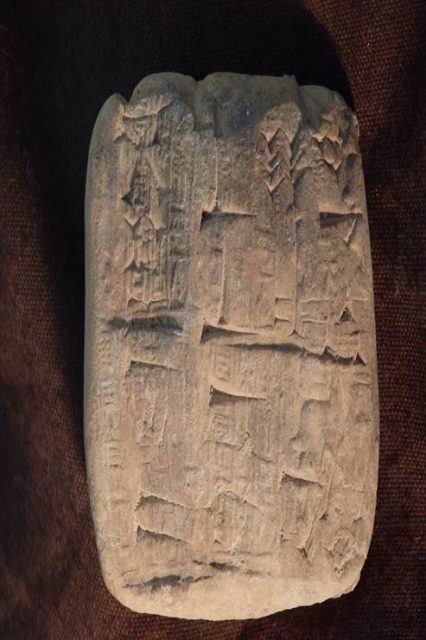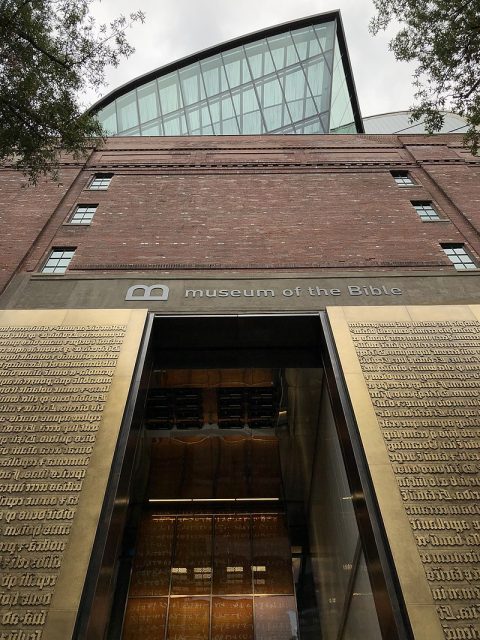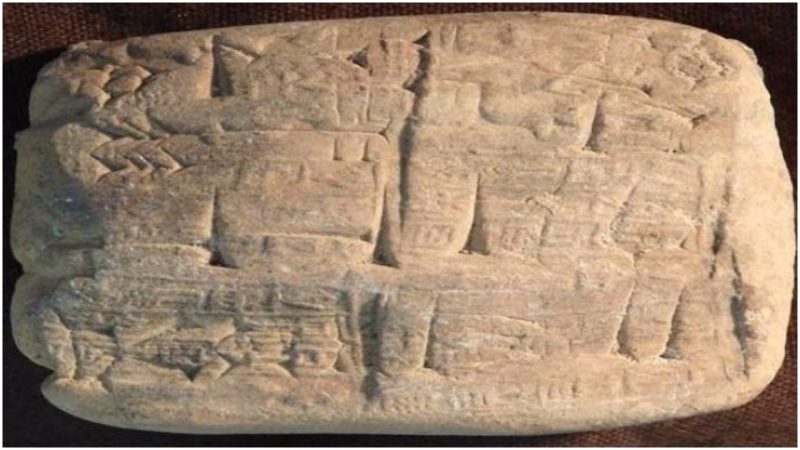Hobby Lobby has been and continues to be one of America’s most popular arts-and-crafts store chains, which employs more than 28,000 people in 800 locations across the United States.
But since 2009, this successful corporation based in Oklahoma has been entangled in a web of controversy. Allegedly the company has developed a smuggling ring which managed to import thousands of ancient relics dating from the 3rd millennium BC―all for the purpose of creating their very own Museum of the Bible in Washington, D.C.
On July 5, 2017, the court finally settled on charging the company with a fine of $3 million and the return of each artifact stolen from the Republic of Iraq.
It was determined that around 5,500 artifacts belonging to the ancient Sumerian civilization that dated from a period between 2100 BC and 1600 BC were looted from archaeological sites and illegally smuggled into the U.S. They were purchased in 2010, for a staggering $1.6 million.

The head of this operation, David Green, who is also the founder of Hobby Lobby Stores, Inc., currently holds one of the largest private collections of biblical antiquities in the world. In total, there are 40,000 objects in his collection, albeit some of them are suspected fakes.
The 2010 shipment contained 5,500 artifacts including clay cuneiform tablets (similar to writing slabs), clay bullae, and cylinder seals, which were smuggled under the false label of tile samples. Also, the purchase included rare Sumerian incantations from the Early Dynastic period (circa 2900 BC to 2350 BC) and a bilingual religious text most probably dating from the Neo-Babylonian culture (626 BC to 539 BC).
The illegal purchase and importation of Iraqi cultural property might be related with the black market run by none other than the members of the so-called Islamic State, who had been looting and tomb raiding the priceless archaeological sites across Iraq in order to fund their terrorist campaigns.

Allegedly the dealers were from the neighboring United Arab Emirates, while the country of origin was deliberately falsely attributed during import, stating that the artifacts were from Israel and Turkey.
The Justice Department stated that the buyers from Hobby Lobby were warned by an expert on cultural property that the purchase would almost certainly be illegal, as it was suspected that the artifacts were acquired through looting. Despite this warning, they proceeded with the purchase, which eventually led to the investigation by the U.S. government.
What is most striking to the experts is the fact that the artifacts in question might originate from an ancient Sumerian city called Irisagrig. A research professor with the Spanish National Research Council, Manuel Molina Martos, stated in his paper On the Location of Irisagrig: “The exact location of this site has been much debated, and regardless of which arguments we may find more convincing, the problem will only be definitively solved by means of surface surveys or regular archaeological excavations… Irisagrig is well documented in cuneiform sources from the third millennium beginning in Early Dynastic times.”

Despite the verdict, The Museum of the Bible was officially opened in November 2017, although the 5,500 pieces were not part of the exhibition.
As of May 2, 2018, several thousand objects were given to the Embassy of Iraq in Washington, D.C., in an effort to repatriate some of the cultural legacy of the war-torn country. This case certainly isn’t the only one as numerous violations, looting, and illegal purchases of archaeological discoveries have been made since the 2003 invasion of Iraq.
It is very hard to estimate how much historical treasure was looted from the country that was once Mesopotamia. One survey which concentrated on the period between 2003 and 2005 claims that the number of looted items from both the sites and the museums ranges between 400,000 and 600,000.
Nikola Budanovic is a freelance journalist who has worked for various media outlets such as Vice, War History Online, The Vintage News, Taste of Cinema, etc. He mostly deals with subjects such as military history and history in general, literature and film.
